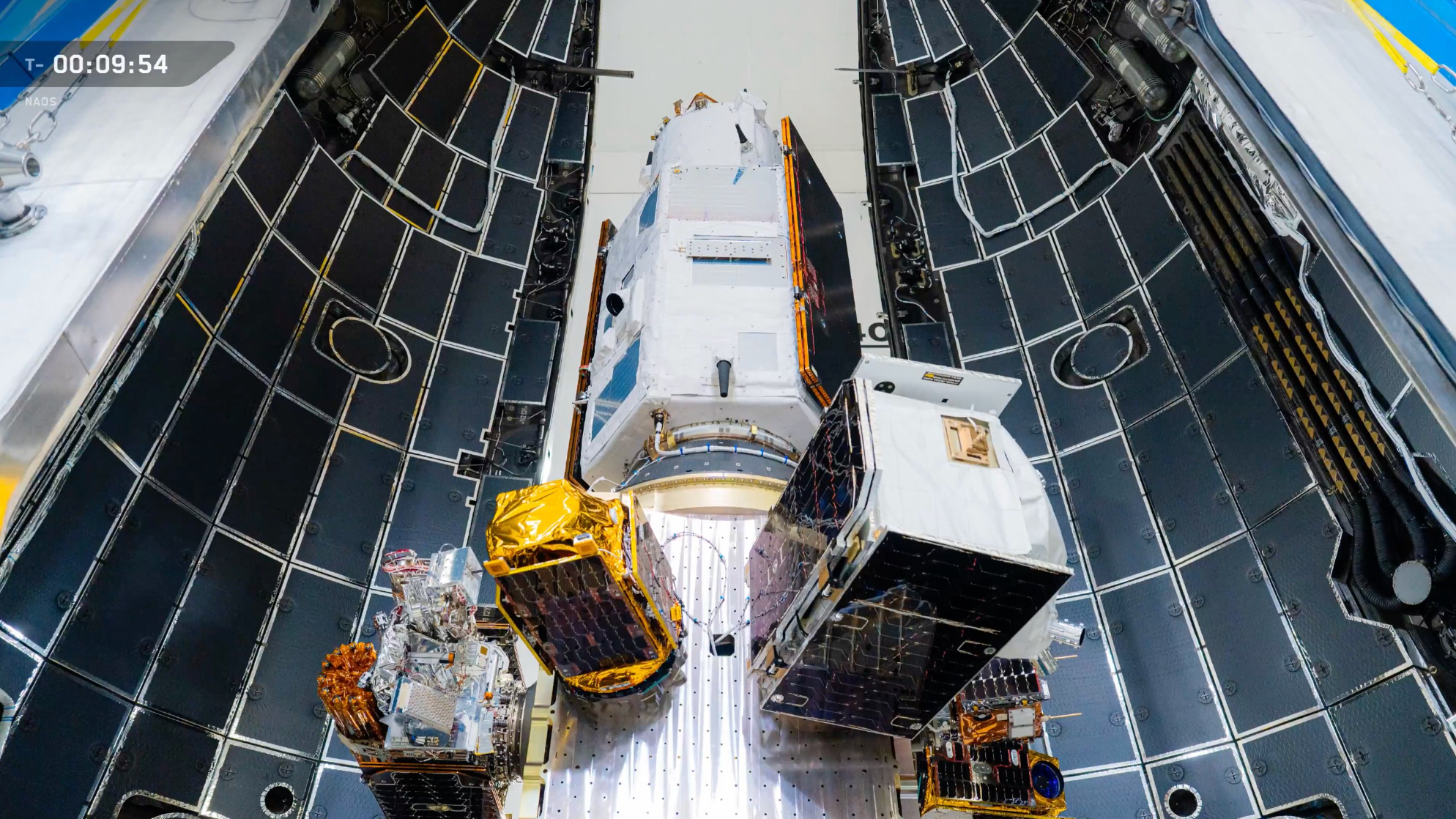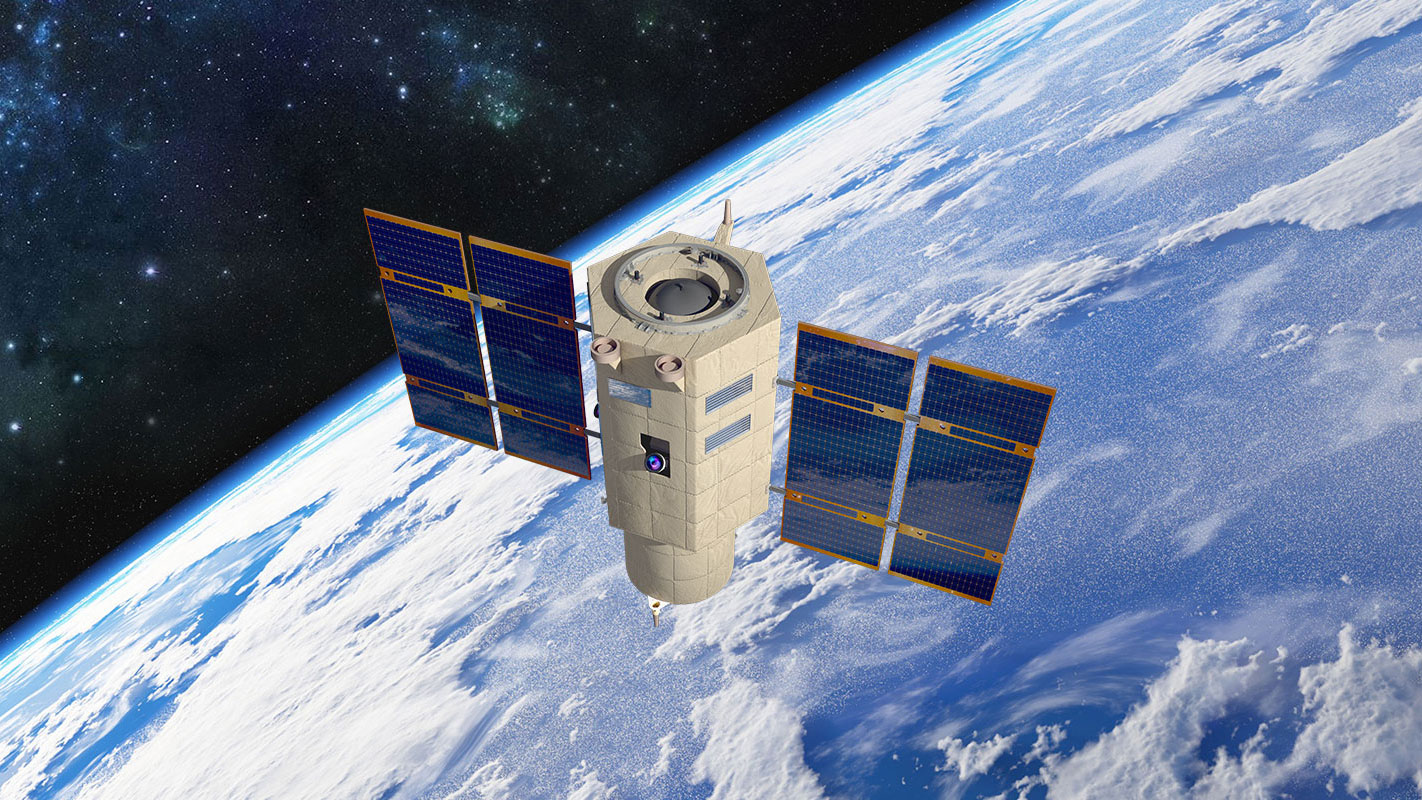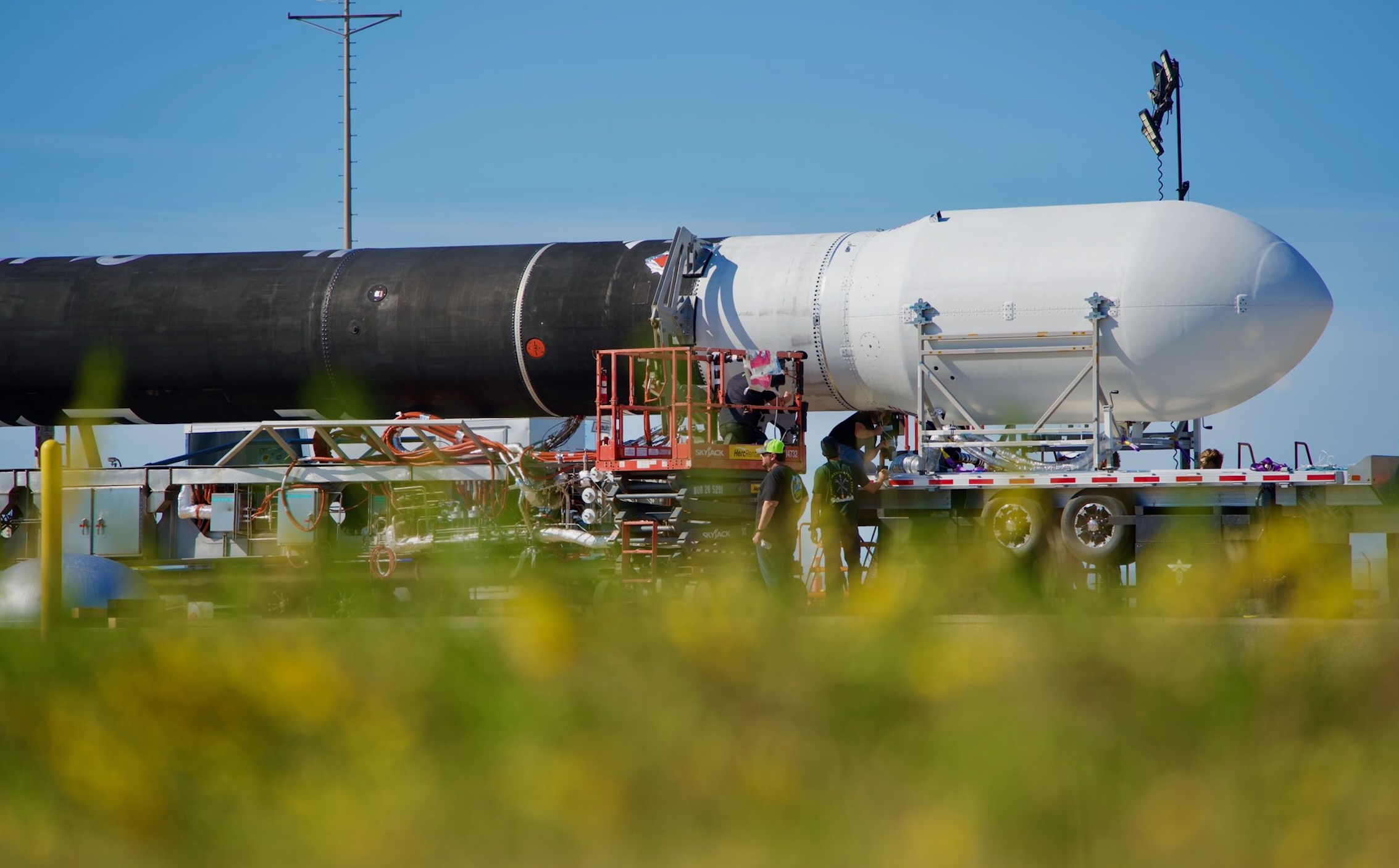SpaceX launches Earth-observation satellite for Luxembourg and 7 other satellites to orbit (video)
Liftoff of the NAOS satellite and its rideshare brethren occurred at 2:53 p.m. ET today (Aug. 26).
Breaking space news, the latest updates on rocket launches, skywatching events and more!
You are now subscribed
Your newsletter sign-up was successful
Want to add more newsletters?
SpaceX launched a new Earth-observation satellite along with several smaller spacecraft from California on Tuesday (Aug. 26).
A Falcon 9 rocket carrying Luxembourg's National Advanced Optical System (NAOS) spacecraft lifted off on Tuesday at 2:53 p.m. EDT (1853 GMT or 11:53 a.m. PDT local) from Space Launch Complex 4 East at Vandenberg Space Force Base.
In addition to NAOS, which was built for Luxembourg by the company OHB Italia, the Falcon 9 is carrying small satellites for Dhruva Space (LEAP-1); the San Francisco-based company Planet (Pelican-3 and Pelican-4); and Exolaunch (Capella's Acadia-6 and Pixxel's FFLY-1, FFLY-2, and FFLY-3).

NAOS was deployed about 12 minutes into the flight as planned, with Pelican-3 and Pelican-4 following a few minutes later. The other secondary payloads are scheduled to be deployed about 69 minutes after launch.
LEAP-1 (or Launching Expeditions for Aspiring Payloads-1) is comprised of two demonstrations, including an advanced artificial intelligence (AI) module and a hyperspectral imager. The Pelican satellites will join Planet's Earth-imaging constellation.
The Acadia and FFLY nanosats are also commercial observation platforms, the former featuring synthetic aperture radar technology and the latter high-frequency hyperspectral imaging.
Sentinel-6 Michael Freilich | DART | Transporter-7 | Iridium OneWeb | SDA-0B | NROL-113 | NROL-167 | NROL-149 | 18 Starlink missions
The Falcon 9's first stage landed back at Landing Zone-4 (LZ-4) at Vandenberg about eight minutes after launch as planned. It was the booster's (B1063) 27th recovery — just two short of SpaceX's reuse record.
Breaking space news, the latest updates on rocket launches, skywatching events and more!
This launch was SpaceX's 104th Falcon 9 mission of 2025 and the 522nd Falcon 9 launch since 2010.
Editor's note: This story was updated at 3:05 p.m. ET with news of successful launch and NAOS, Pelican-3 and Pelican-4 deployment.

Robert Pearlman is a space historian, journalist and the founder and editor of collectSPACE.com, a daily news publication and community devoted to space history with a particular focus on how and where space exploration intersects with pop culture. Pearlman is also a contributing writer for Space.com and co-author of "Space Stations: The Art, Science, and Reality of Working in Space” published by Smithsonian Books in 2018.
In 2009, he was inducted into the U.S. Space Camp Hall of Fame in Huntsville, Alabama. In 2021, he was honored by the American Astronautical Society with the Ordway Award for Sustained Excellence in Spaceflight History. In 2023, the National Space Club Florida Committee recognized Pearlman with the Kolcum News and Communications Award for excellence in telling the space story along the Space Coast and throughout the world.
You must confirm your public display name before commenting
Please logout and then login again, you will then be prompted to enter your display name.

